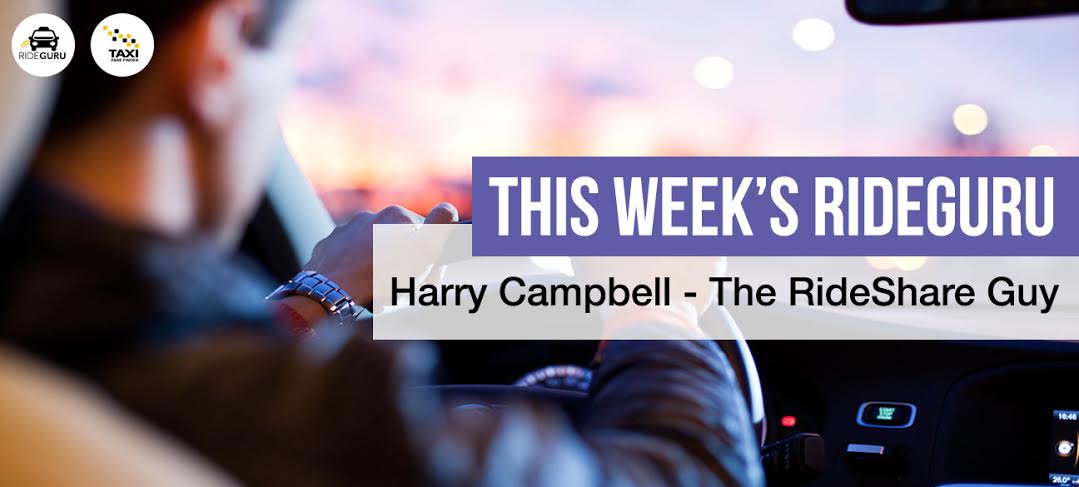 I still remember the first senior citizen I picked up as an Uber driver. He was 85, and visiting Los Angeles from Chicago for two weeks. The gentleman was a retired museum curator but he had graciously volunteered his time to work with a local museum on a new project. He knew absolutely no one out here but before he left Chicago, his nephew had loaded the Uber app on to his smart phone so he could get around LA.
I still remember the first senior citizen I picked up as an Uber driver. He was 85, and visiting Los Angeles from Chicago for two weeks. The gentleman was a retired museum curator but he had graciously volunteered his time to work with a local museum on a new project. He knew absolutely no one out here but before he left Chicago, his nephew had loaded the Uber app on to his smart phone so he could get around LA.
The ride request came in just south of Sunset Blvd. and as I scooted over there, I saw that my passenger was calling me. This was kind of an odd occurrence but I answered the call and we arranged a pick-up location (normally I just drive to the pin and the passenger gets a notification that I’ve arrived). But he was able to quickly describe where he was, and within minutes, he was sitting in my front seat as we headed towards Hollywood.

That ride was over a year ago and in the time since, there’s been a significant up tick in Uber rides given to senior citizen passengers. One Uber driver I spoke with, named Martha Voorhees, told me that “40% of my clients are seniors. They have smart phones, their grandchildren have loaded the app and they were taught how to use it. Then from there, they teach others how to use it. It’s quite viral in the senior group.”
It’s a well known fact that the United States is seeing a dramatic shift in the age demographic of the population. Census data from 2012 found that 76 million baby boomers (those born between 1946 to 1964) were living in the US at the time. And projections from the Census Bureau also suggest that 71.4 million people will be age 65 or older in 2029, or 20 percent of the US.
The social impact of this aging demographic has been discussed ad nauseam but seniors have already started taking the matter of transportation into their own hands. Despite technical challenges and unfamiliarity, a lot of them really don’t have any other options and Uber is the perfect solution for them.
Uber Targets Seniors Too
While driver evidence of an uptick in rides given to seniors has been anecdotal, Uber has clearly recognized the opportunity that this demographic represents. In addition to the sheer magnitude of potential customers, seniors also represent the ideal customer for Uber. The casual rider might need 1-2 rides a week but a senior citizen who has no means of transportation might need a ride or two every single day.
Uber’s CEO, Travis Kalanick, has talked before about bringing down the cost of Uber rides to the point where it’s cheaper than owning a car. But for seniors who don’t even own a car, Uber doesn’t need to compete with the cost of ownership. A few weeks ago, they released a promotional video that details how Uber is increasing mobility options for seniors.
Uber Isn’t The Only One Though
Uber’s sheer size may be great for investors but it is also a weakness when it comes to serving the demands of niche rideshare spaces. Much like what we’ve seen with the companies who specialize in ‘Uber for Kids’, there are a lot of things that a small agile start-up can do better than Uber when trying to cater to a very specific audience.
Companies like Shuddle and Hop Skip Drive, that solely transport children, have recognized that parents value safety, the ability to pre-book rides and upfront pricing. Uber has faced issues in multiple countries in regards to its background checks for drivers, and even something as simple as a phone number that customers can call is not currently part of Uber’s offering.
There is one start up currently in the ‘Uber for Seniors’ niche, called Lift Hero. It operates in San Francisco and allows seniors to book a ride online or over the phone with a live operator. It’s that personal touch that tech-centered companies like Uber will likely never provide. Lift Hero’s founder, Jay Connolly, told me “I’m actually surprised Uber hasn’t pursued this market sooner but it is a bit of a danger for them. It goes against their brand, Uber is all about maximizing automation and efficiency, no phone operators, no personal service, etc.”
Talking about how Lift Hero is different, Connolly said, “We’re fusing the old and the new by providing a phone interface for seniors to call in and book rides. Our company adapts to the rider, not the other way around. And we provide more than just transportation. Our drivers provide accompaniment as well and we train them to understand what our passengers (seniors) are going through and how to help them.”
Although Lift Hero seems to be addressing a lot of the concerns that seniors may have, Uber is the name that everyone knows and turns to when they need a ride. And many seniors that I’ve spoken to still have some apprehension when it comes to riding with Uber:
- Safety – It’s no secret that Uber has received a lot of negative press over the past year. Seniors cite background checks for drivers, legality and safety as their top concerns for riding with Uber.
- Technological – For seniors who grew up in a time before cell phones even existed, the jump to using an app on a smart phone can be a big one. But most seniors I’ve talked to have been able to get help from a younger, more tech savvy relative. The ability to book rides via an operator could be a big benefit.
- Generational – A lot of seniors don’t want to ask for help despite needing to get places all the time. Statistics show that seniors who can’t drive actually miss 15% of their medical appointments compared to their peers who can.
Some Seniors Still Love Uber
Despite some angst, it’s rare to find a senior who has had a bad experience with Uber and it’s not just on the passenger side either. Uber doesn’t collect data on the demographic of its riders but on my site, (that caters towards rideshare drivers), I’ve found that close to 40% of my audience is over the age of 50.
And as I explored in a recent interview with a baby boomer driver, rideshare driving really is the perfect compliment for seniors in need of some extra income. These drivers value the flexible nature of working for Uber and they’re able to use the money they earn from driving to top off their social security checks or combine it with income from other part-time work.
Seniors Help Drivers Too
With one year of Uber experience under my belt, there’s a lot to like, but there’s also a lot that can make you pretty fed up with the experience and the company in general (there’s a reason why 50% of Uber drivers quit after just one year). Ferrying drunk passengers around at 2 am for $4 ($2.40 after Uber’s cut) isn’t exactly life changing work. Sure, you may be helping them avoid a DUI, but you’re not always thinking about that when they’re banging on your head rest or on the verge of vomiting in your car.
The graveyard shift can be a bit thankless as an Uber driver, but transporting seniors really does make you feel like you’re doing some good for the world. Voorhees summed up her experience, “I once had a 93 yr old walk out in his walker, I helped him in and I was amazed…He said ‘Honey I can go anywhere I want…the road is endless with Uber…now let’s go to the bakery so I can have my goodies….’”
 About Harry Campbell, The RideShare Guy
About Harry Campbell, The RideShare Guy
Hello TFF Readers, my name is Harry Campbell and I run a blog for rideshare drivers called The Rideshare Guy and I also write about the on demand economy for Forbes. I’ll be sharing articles from time to time on what’s going on in the world of rideshare and what you need to know as a passenger whether you enjoy taxis, rideshare or all of the above!
